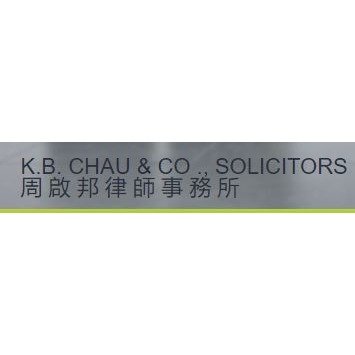Best Inheritance Law Lawyers in Admiralty
Share your needs with us, get contacted by law firms.
Free. Takes 2 min.
List of the best lawyers in Admiralty, Hong Kong
About Inheritance Law Law in Admiralty, Hong Kong
Inheritance law in Admiralty, Hong Kong, governs how a deceased person’s estate is distributed. In practice, most cases are handled through the Probate Registry of the Hong Kong judiciary, even when maritime assets are involved. Admiralty considerations come into play when the decedent owned ships, maritime shares or cargo that require special lis pendens and lien considerations before distribution proceeds.
In Hong Kong, the same fundamental principles apply whether the estate is ordinary or maritime in nature. A valid will directs distribution, while if there is no will, the estate is distributed according to statutory intestacy rules. The process typically requires a formal grant of probate or administration to authorize the executor or administrator to manage assets, pay debts, and distribute remaining property to beneficiaries.
In Hong Kong, the grant of probate or letters of administration is the key authority that allows a person to administer a deceased person’s estate.Source: Judiciary - Probate Registry
Why You May Need a Lawyer
Engaging a solicitor or attorney who specializes in inheritance and Admiralty matters can prevent delays and reduce costs. The following real-world scenarios illustrate when legal help is essential in Admiralty, Hong Kong:
- A decedent owned a vessel and maritime assets, with creditors claiming liens against the estate. A lawyer helps prioritise debts, secure timely distributions, and ensure lien enforcement is properly handled in probate proceedings.
- The will contains complex maritime provisions, including shares in a ship company and offshore assets. A legal counsel can interpret the will, identify beneficiaries, and coordinate cross-border asset transfers.
- There is a challenge to the will based on improper execution or allegations of undue influence. An inheritance lawyer can prepare evidence, represent beneficiaries, and navigate court applications for probate validity challenges.
- The deceased died intestate (without a will), leaving maritime and domestic assets in multiple jurisdictions. A solicitor can file for letters of administration, identify rightful beneficiaries, and address foreign probate requirements.
- There are residual disputes with dependents or third parties over estate entitlements, including claims arising from maritime employment or compensation schemes. A solicitor can negotiate settlements or represent you in court if needed.
- Cross-border assets require coordination with foreign courts and foreign executors. An attorney with Admiralty experience can manage multi-jurisdictional probate issues and ensure compliance with local rules.
Local Laws Overview
Hong Kong’s inheritance framework for Admiralty matters rests on a few core statutes and legal concepts. The following laws govern the validity of wills, the administration of estates, and the distribution rules for intestate cases. For exact text and updates, consult the official legislation portal and the judiciary's probate guidance.
- Wills Ordinance - Governs the creation, execution, and validity of wills, including formal requirements for witnessing and amendment. This statute determines whether a will can properly direct the distribution of assets, including maritime property.
- Probate and Administration Ordinance - Sets out the process to obtain a grant of probate or letters of administration so an administrator or executor can collect assets, pay debts, and distribute the estate. This is the primary mechanism for formal estate management in Admiralty matters.
- Intestates' Estates Ordinance - Provides the statutory scheme for distributing the estate when there is no valid will. It identifies the classes of beneficiaries and the portion of the estate they may receive.
To stay current, review official sources for any amendments or updated procedures. The Hong Kong Legislation portal hosts authoritative texts, and the Judiciary provides practical guidance on probate and administration procedures.
Key point: In Admiralty matters, the distribution of maritime assets in an estate follows the same probate framework, but priorities for liens and maritime claims may affect timing and amounts distributed. All steps are subject to court orders and statutory protections for creditors and dependants.
Grant of probate or letters of administration authorizes the representative to collect assets, pay liabilities, and distribute the remainder to beneficiaries.Source: Judiciary - Probate Registry; Legislation - Wills Ordinance; Legislation - Intestates' Estates Ordinance
Frequently Asked Questions
What is a grant of probate and when is it needed?
A grant of probate is a court order confirming the validity of a will and authorising the executor to administer the estate. It is typically required before the deceased’s assets can be distributed.
What is the difference between probate and letters of administration?
Probate applies when there is a valid will; letters of administration apply when there is no will. Both authorize the executor or administrator to manage the estate and settle debts.
How do I start a probate or administration application in Hong Kong?
Begin by consulting a solicitor who prepares the required forms, gathers documents such as the death certificate and the will, and files the application with the Probate Registry.
What costs are involved in probate and administration?
Costs include court fees, legal fees for counsel and solicitors, and potential expert costs for asset valuation or land registration. Fees vary by estate size and complexity.
How long does the probate process typically take in Hong Kong?
Simple cases may take 6 to 12 months, while complex estates with maritime assets or cross-border elements can exceed a year. Timelines depend on accuracy of documents and court schedules.
Do I need a local solicitor or can a non-resident lawyer handle my case?
Hong Kong law typically requires local representation for probate and administration, especially for court filings and asset localization. A local solicitor or attorney is recommended.
Can a will be contested after probate has been granted?
Yes. Common grounds include lack of testamentary capacity, undue influence, or improper execution. A contest can delay distribution and may require court hearings.
Is electronic signing of wills recognized in Hong Kong?
Hong Kong requires formal execution for wills, including proper witnessing. Consult a solicitor for compliance and any recent updates.
What if the deceased owned ships or maritime assets?
Maritime assets follow probate rules, but liens and maritime claims may affect distribution. A maritime law or Admiralty practitioner can help manage priority issues.
What is the role of creditors in the probate process?
Creditors are paid from the estate before distributions to beneficiaries. A lawyer helps identify all liabilities and ensures timely payment from estate assets.
Can I handle cross-border assets without local advice?
Cross-border assets complicate tax, currency, and legal issues. Local legal counsel with Admiralty experience helps coordinate multi-jurisdictional steps.
What should I do if I suspect a will is invalid or improperly executed?
Do not alter the will or distribute assets yourself. Seek immediate advice from a solicitor to assess validity and potential next steps in court.
Additional Resources
Use these official sources for authoritative guidance on inheritance law and probate procedures in Hong Kong:
- Judiciary - Probate Registry - Official guidance on applying for probate and administration, as well as court processes and forms. Visit site
- Department of Justice (Hong Kong) - Government information on wills, probate, and administration, including statutory context and public guidance. Visit site
- Hong Kong Legislation Portal - Official text of laws such as the Wills Ordinance and Intestates' Estates Ordinance with search and updates. Visit site
Next Steps
- Confirm whether the estate requires probate or letters of administration by reviewing the will and asset structure with a solicitor who specializes in inheritance matters.
- Gather essential documents: death certificate, the original will, asset schedules, list of debts, and contact details for beneficiaries and creditors.
- Consult a qualified solicitor or attorney with Admiralty experience to assess maritime assets and potential liens early in the process.
- Choose a local legal counsel and schedule a formal consultation within 1-2 weeks to outline the filing strategy and timeline.
- Prepare and file the probate or administration application with the Probate Registry, including all supporting documents, to obtain the necessary court authority within 4-8 weeks.
- Identify and notify creditors, settle valid debts, and distribute remaining assets to beneficiaries as directed by the will or intestacy rules, under court supervision.
Lawzana helps you find the best lawyers and law firms in Admiralty through a curated and pre-screened list of qualified legal professionals. Our platform offers rankings and detailed profiles of attorneys and law firms, allowing you to compare based on practice areas, including Inheritance Law, experience, and client feedback.
Each profile includes a description of the firm's areas of practice, client reviews, team members and partners, year of establishment, spoken languages, office locations, contact information, social media presence, and any published articles or resources. Most firms on our platform speak English and are experienced in both local and international legal matters.
Get a quote from top-rated law firms in Admiralty, Hong Kong — quickly, securely, and without unnecessary hassle.
Disclaimer:
The information provided on this page is for general informational purposes only and does not constitute legal advice. While we strive to ensure the accuracy and relevance of the content, legal information may change over time, and interpretations of the law can vary. You should always consult with a qualified legal professional for advice specific to your situation.
We disclaim all liability for actions taken or not taken based on the content of this page. If you believe any information is incorrect or outdated, please contact us, and we will review and update it where appropriate.















